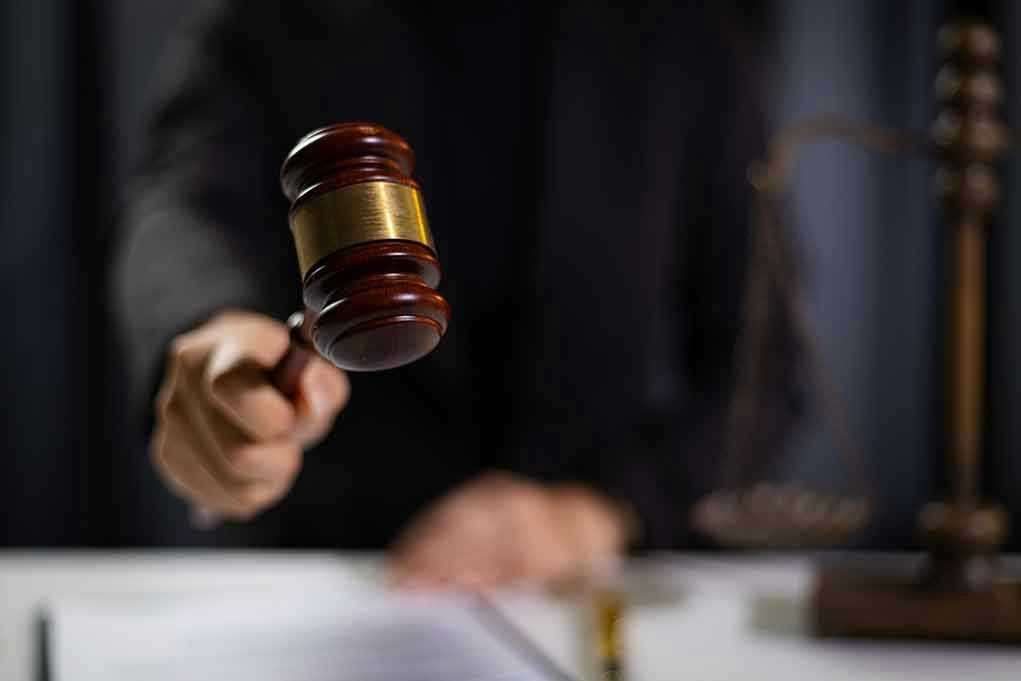
After years of frustration over apparent double standards in Washington, the federal indictment of James Comey signals a pivotal moment as Trump’s Justice Department finally holds a former FBI director to account.
Story Snapshot
- James Comey, former FBI Director, pleaded not guilty to perjury and obstruction charges tied to his 2020 congressional testimony.
- The indictment follows direct pressure from President Trump and a sweeping overhaul of DOJ leadership to restore accountability.
- The case tests the boundaries of executive authority and challenges the independence of federal law enforcement.
- Comey’s prosecution ignites debate over political retribution and the future of constitutional checks and balances.
Comey Faces Justice After Years of Political Controversy
James Comey, once a symbol of the so-called “deep state,” now stands in an Alexandria courtroom, pleading not guilty to two federal charges: making a false statement and obstruction of a congressional proceeding. The charges stem from his 2020 testimony regarding the FBI’s handling of the Trump-Russia investigation, an episode that many conservatives believe marked the height of government abuse and partisan overreach. Comey’s arraignment comes after months of renewed public demands for accountability from President Trump and a Justice Department determined to reestablish law and order after years of perceived double standards.
This high-profile prosecution did not emerge out of thin air. President Trump, now in his second term, made clear during his campaign and transition that restoring justice and rooting out government corruption would be a top priority. Comey’s firing in 2017 set the stage for years of political turbulence, with many on the right convinced the former FBI director was complicit in efforts to undermine the Trump presidency. The 2025 indictment followed Trump’s direct involvement, including the appointment of Attorney General Pamela Bondi and U.S. Attorney Lindsey Halligan, both vocal about the need for accountability at the highest levels. Comey’s legal team, led by Patrick J. Fitzgerald, maintains his innocence and frames the prosecution as politically motivated, while the DOJ insists that no one — not even a former FBI director — is above the law.
DOJ Independence and Executive Power Under Scrutiny
The Comey case has reignited a national debate: To what extent should a president influence federal prosecutions, especially when political adversaries are involved? Critics allege that Trump’s pressure on the DOJ and installation of loyalists risk turning the justice system into a political weapon. Supporters counter that the previous administration’s refusal to prosecute Comey — despite evidence of misleading Congress — reflected a dangerous bias that undermined faith in government. Attorney General Bondi’s statement that “no one is above the law” has become a rallying cry for those demanding equal treatment, while civil liberties groups warn of a chilling effect on independent law enforcement. The legal community remains divided, with some experts noting the rarity of perjury charges against former high-ranking officials and others insisting such prosecutions are necessary to restore public confidence.
Comey’s indictment has exposed deep rifts within the Department of Justice itself. Internal sources report significant dissent, with some prosecutors objecting to the merits and ethics of pursuing the case given earlier DOJ findings that lacked probable cause. The replacement of key DOJ officials with Trump allies has further fueled concerns about politicization, yet for many conservatives, these changes represent long-overdue reforms to a bureaucracy that resisted transparency and accountability. The grand jury’s decision to indict, despite previous reluctance, underscores the shifting power dynamics and the president’s determination to see justice done.
Political Fallout and the Future of Legal Norms
The impact of the Comey prosecution extends far beyond the courtroom. In the short term, the case has intensified partisan polarization, with both Trump supporters and critics using the indictment as a rallying point. Public trust in federal law enforcement and the independence of the DOJ is now at the center of national debate. For many Americans, especially conservatives who felt betrayed by the weaponization of government against their values, the prosecution is a long-awaited step toward restoring constitutional order. Yet, civil liberties advocates and former DOJ officials warn that the precedent of prosecuting former officials for congressional testimony could erode essential legal norms and set the stage for future political vendettas.
Looking ahead, the outcome of the Comey trial will shape the relationship between Congress, law enforcement, and the executive branch for years to come. If the DOJ prevails, it may embolden further efforts to hold high-level officials accountable and deter future abuse of power. If the prosecution is seen as overreach, however, it could fuel calls for new safeguards to protect the independence of federal agencies. As Trump’s administration continues to pursue its agenda, Americans on all sides are watching closely to see whether justice will be served — and at what cost to the nation’s institutions.
🔥BREAKING: Former Federal Bureau of Investigation Director James Comey pleaded not guilty Wednesday to the two criminal charges he faces for allegedly lying to Congress.@mobleymaryjhttps://t.co/IDJ1dYVkHQ
— The Daily Signal (@DailySignal) October 8, 2025
The Comey indictment marks an unprecedented test of federal legal norms and the resilience of American constitutional checks and balances. With the trial pending and legal motions expected, conservative Americans remain vigilant, determined to ensure that justice is not only served, but seen to be served — regardless of political pressure or media spin.
Sources:
Former FBI Director James Comey indicted days after Trump’s call for prosecution – ABC News
BREAKING: Comey Enters Plea on Perjury, Obstruction Charges – The Daily Signal
Former FBI Director James Comey to be arraigned on federal charges – Straight Arrow News
James Comey Pleads Not Guilty to Perjury, Obstruction Charges – National Review











